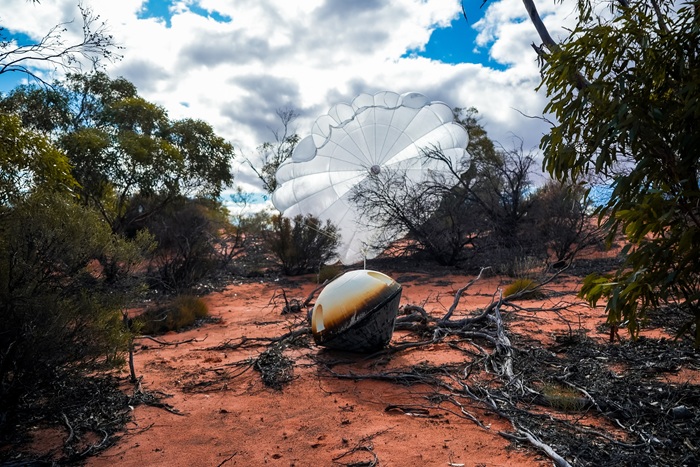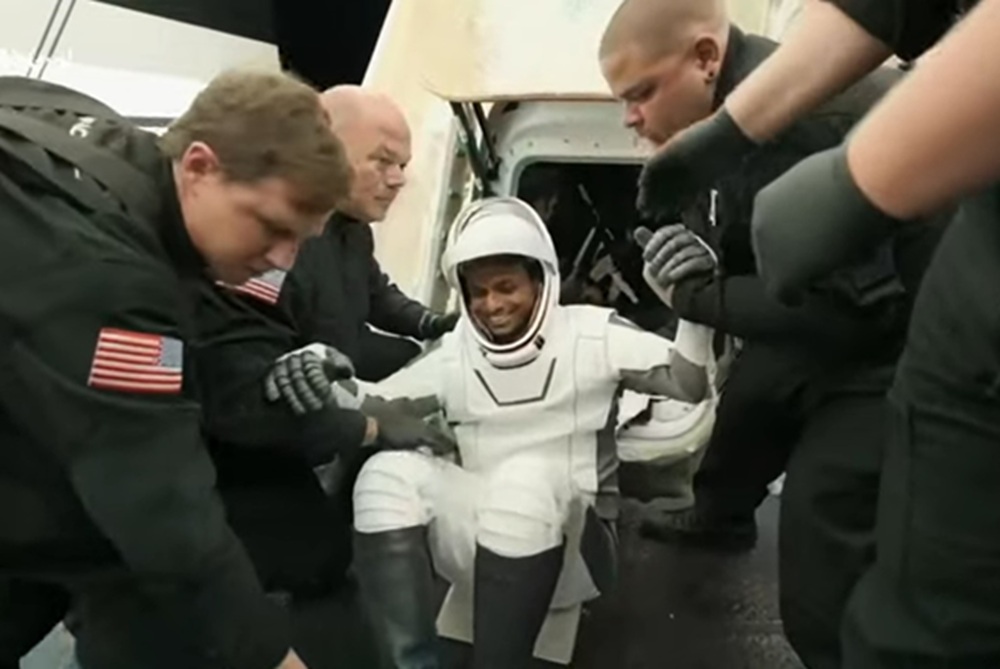LONG BEACH, California – Rocket Lab USA, Inc., a leading space systems and launch company, has demonstrated unprecedented rapid turnaround in Earth return missions by successfully completing two re-entry operations within a span of just two months. The latest achievement marks the third successful mission in the W-series for Varda Space Industries, a pioneering company specializing in orbital pharmaceuticals and hypersonic re-entry logistics.
At 02:07 a.m. UTC on May 14, Rocket Lab’s versatile Pioneer spacecraft supported the safe return of Varda’s W-3 capsule to Earth, landing at the Koonibba Test Range in South Australia, operated by Southern Launch. This mission underscores Rocket Lab’s growing expertise in rapid spacecraft deployment, on-orbit management, and precise re-entry operations.
Rocket Lab’s Pioneer spacecraft platform, designed and built at the company’s Spacecraft Production Complex in Long Beach, California, is a medium delta-V spacecraft engineered for flexibility and reliability. It provides essential mission functions such as power, communications, propulsion, and attitude control for Varda’s 120-kilogram manufacturing capsules. These capsules leverage the unique microgravity environment of low Earth orbit to manufacture pharmaceuticals and other products that are difficult or impossible to produce on Earth.
The W-3 mission follows two earlier milestones in the W-series:
W-1 Mission: Launched in 2023, this was the world’s first space manufacturing mission conducted outside the International Space Station. The W-1 capsule completed its on-orbit operations in February 2024 and returned to Earth, landing at the Utah Test and Training Range near Salt Lake City, Utah.
W-2 Mission: Launched a year later, W-2 successfully completed its mission and landed at the Koonibba Test Range in South Australia on February 27, 2025. This mission carried payloads from the Air Force Research Laboratory and NASA’s Ames Research Center, expanding Varda’s pharmaceutical processing capabilities in orbit.
Remarkably, the W-3 mission launched just 15 days after the successful re-entry and landing of W-2 on March 14, 2025, illustrating Rocket Lab’s ability to rapidly produce, test, and deploy spacecraft for consecutive missions.
Each Pioneer spacecraft is a product of Rocket Lab’s vertically integrated manufacturing approach, incorporating proprietary components such as star trackers, propulsion systems, reaction wheels, solar panels, flight software, radios, composite structures, tanks, and separation systems. This integration allows for rapid development cycles and tailored spacecraft solutions that meet the specific needs of customers like Varda.
Rocket Lab founder and CEO Sir Peter Beck emphasized the significance of this achievement saying, “Managing three successful missions for Varda in just over a year is a testament to our team’s ability to produce tailored spacecraft for our customer’s specific needs quickly and efficiently. Our Pioneer spacecraft consistently proves its rapid re-entry capability, versatility, and reliability, delivering critical mission functions that continually push the boundaries of space technology. Varda’s missions showcase Rocket Lab’s commitment to groundbreaking advancements in space manufacturing and re-entry logistics, and we’re immensely proud to be a part of these achievements.”
Varda Space Industries’ Vice President of Hypersonic and Reentry Test, Dave McFarland, highlighted the broader implications of these missions, “Varda’s third successful reentry represents a new era in the commercialization of low Earth orbit. The rapid succession of our missions demonstrates that this is a capability both Varda, and our partners can consistently rely on.”
The W-series missions signify a shift toward routine, reliable in-space manufacturing and recovery operations, enabling the development of high-value products in microgravity environments. This capability opens new markets and applications, particularly in pharmaceuticals, where microgravity can enhance crystallization and other processes.
Rocket Lab’s Pioneer spacecraft execute a series of carefully timed propulsion maneuvers to transition from orbit to re-entry trajectory. Starting from a roughly 500 km circular orbit, the spacecraft performs an initial engine burn to lower the perigee (closest point to Earth) to about 300 km, followed by a second burn to raise the apogee (farthest point) to approximately 900 km. These orbital adjustments align the spacecraft for the final re-entry burn, which sets Varda’s capsule on a precise course for landing.
During descent at hypersonic speeds near 31,000 km/h, the Pioneer spacecraft releases the capsule at about 470 km altitude. From this point, Varda’s team manages parachute deployment, touchdown, and recovery operations. The entire descent from release to landing takes approximately 15 minutes, showcasing the precision and reliability of Rocket Lab’s spacecraft and mission control operations.
Rocket Lab is currently integrating and testing the fourth Pioneer spacecraft for Varda’s W-series missions at its Long Beach facility. This continued collaboration highlights the companies’ commitment to advancing in-space manufacturing and hypersonic re-entry logistics, aiming to make these operations more routine and scalable.
Founded in 2006, Rocket Lab is an end-to-end space company headquartered in Long Beach, California. It provides reliable launch services, satellite manufacturing, spacecraft components, and on-orbit management solutions designed to make access to space faster, easier, and more affordable. Rocket Lab’s Electron launch vehicle has become the second most frequently launched U.S. rocket annually since its first orbital launch in 2018, delivering over 200 satellites to orbit for government and commercial customers.





